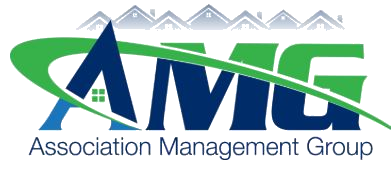2021 AMG Scholarship Winners Press Release
/Association Management Group (AMG) - Carolinas Announces Winners in 2nd Annual Scholarship Program
HOA Management Company Servicing the Carolinas Awards Four College/University Scholarships to Community Members
(Greensboro, NC) July 22, 2021 – Association Management Group (AMG), a leading professional community association management company in the Carolinas, announced today the four college/university scholarships winners of $1,000 in its College/University Scholarship Program. AMG provides professional residential property management services to more than 30,000 homeowners across the Carolinas living in communities with homeowners or community associations.
AMG wholeheartedly believes in the preservation and enhancement of homeowner associations, emphasizing the value of community as it contributes to one’s overall quality of life. As a leading property management association, AMG works closely with dedicated community members, service providers and employees throughout the North and South Carolina regions.
This year’s scholarship prompt was based around just thatꟷ the importance of community. The essays were evaluated anonymously by a panel of eight judges, including representatives and staff from AMG, community board members from Greensboro, Charlotte and Greenville, as well as client community vendors. The program was open to residents and vendors from AMG properties, as well as AMG employees and family members from each respective category.
“We were pleasantly surprised by the turnout from this year’s program. It is so encouraging to hear from the future leaders of our community, especially in how their own experiences have shaped them into thoughtful, community-conscious individuals. I think giving back to the community is incredibly rewarding and it is uplifting to see young people with that same spark,” said AMG Vice President May Gayle Mengert.
The AMG scholarship recipients are:
• Manuela Monjimbo, attending the University of North Carolina at Chapel Hill, was awarded the Corey Flynt Scholarship. Flynt, who died in a car accident in 2017, was the son of AMG’s President Dacy Cavicchia and brother to Charlotte Director of Operations, Danielle Rudisill and Special Projects Coordinator, Cassie Kutay.
• Sophia Bowers, also attending the University of North Carolina at Chapel Hill, was awarded the Billie Butler Scholarship in honor of Butler’s 20+ years dedicated to serving AMG clients in the Charlotte area.
• Bethany Castro-Lucero, attending the University of North Carolina at Greensboro, was awarded the Ron Erickson Scholarship in honor of the late world-class financial planning professional and role model to all who knew him.
• Payton Egan, attending Appalachian State University in Boone, North Carolina, was awarded the Tommy Badgett Scholarship in honor of long-term AMG employee and friend, who recently passed away this past January. His memory, in addition to the previously listed honorees, will be cherished forever.
“This scholarship program has been a great way to highlight the significance of community while honoring the memory of four individuals and their contributions to our community. I cannot think of a better way to continue honoring their legacies than by doing our part to help make a difference in the lives of others. The chosen essays reflect the diversity of our communities, and all have a common theme of appreciating cultures aside from our own,” added CEO Paul Mengert.
About AMG:
AMG is a professional community association management company dedicated to building effective community associations. AMG guides and assists executive boards to help protect the association’s interests, enhance the lives of community members and improve the property values in the community. With offices throughout the Carolinas, AMG is a knowledgeable partner in enforcing community governing documents with a proven set of processes and techniques and supporting communities with a broad range of services that can be tailored to individual community needs. Association Management Company, Inc., is a locally Accredited Business by the BBB and is a nationally Accredited Association Management Company (AAMC) by the Community Associations Institute.
For more about AMG, visit AMGworld.com.





















